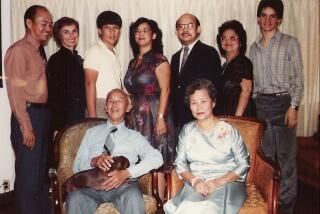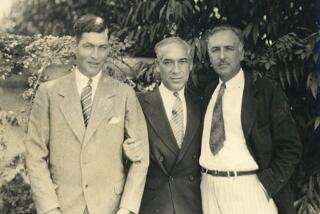Review: ‘The House on Coco Road’ is a compelling take on an African American family’s odyssey
“The House on Coco Road” is the story of director Damani Baker’s family, particularly his mother, Fannie Haughton, and her remarkable life, reflective of the troubled history of race in America. Descended from Louisiana sharecroppers (the title refers to that home), and the product of the Great Migration to California, Fannie was a teaching assistant of Angela Davis at UCLA in the late ’60s and was closely associated with the Black Panther Party.
After drugs ravaged the family’s Oakland neighborhood in the early ’80s, Fannie took her children to the seeming utopia of Grenada, an island in the Caribbean where a peaceful communist revolution was taking place under the leadership of Maurice Bishop. In 1983 that paradise came under attack, invaded by American forces stoked by fake news and Reagan’s political panic.
Baker weaves together 16-mm home movies, archival news and footage he shot during a return trip to the island in 1999, with contemporary interviews to unpack his childhood memories of the family’s short, violent experience in Grenada. The film effectively positions the invasion as an attempt to destabilize revolutionary black leadership in the area, in much the same way the U.S. did with the Black Panthers.
“The House on Coco Road” is a remarkable document of how social forces affected the lives of Baker and his ancestors. It might lack the scope to encompass all of the story it wants to tell, but it’s a compelling conversation starter.
-------------
‘The House on Coco Road’
Not rated
Running time: 1 hour, 30 minutes
Playing: The Cinefamily, June 27; streaming on Netflix, June 30
See the most-read stories in Entertainment this hour »
Movie Trailers
More to Read
Only good movies
Get the Indie Focus newsletter, Mark Olsen's weekly guide to the world of cinema.
You may occasionally receive promotional content from the Los Angeles Times.






